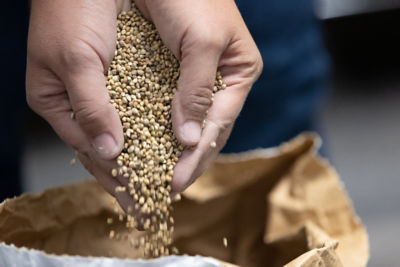Causal Agent
Tomato spotted wilt virus (TSWV), Peanut bud necrosis virus (PBNV) (synonym: Groundnut bud necrosis virus)
Vector
Western flower thrips (Frankliniella occidentalis), Tobacco thrips (F. fusca), Melon thrips (Thrips palmi) and others
Distribution
TSWV: Worldwide; PBNV: Asia and Australia
Symptoms
These viruses are related and can be differentiated by vector, host range, serology and genetic analysis. Infection is particularly severe in seedlings that usually remain stunted and unproductive. Foliar symptoms include yellow or necrotic concentric ring patterns, and mosaic with chlorotic and necrotic spots. Necrotic streaks can develop on stems and extend to the top of the plant. In some cultivars, the apical shoot dies and leaves drop. In pepper, reduced laminar growth can cause a shoestring appearance to leaves. Pepper and eggplant fruit are deformed and often drop. Usually small chlorotic or discolored spots develop that later turn necrotic. Fruit scarring and distinct concentric rings can also develop. In pepper fruit, red, green and yellow discoloration is often present. Seeds inside affected fruit may turn black.
 Yellow concentric rings on pepper leaf.
Yellow concentric rings on pepper leaf.
Conditions for Development
These viruses and their vectors have a very wide host range. The presence of infected weeds or mature plants in adjacent fields can pose a threat to newly planted crops. Larvae acquire the virus after short feeding periods. Once infected, adult thrips transmit these viruses for the duration of their lives. Temperatures above 22° C (72° F) accelerate the hatching of eggs, resulting in explosive spread of these vectors and viruses. Tospoviruses are not seed transmitted.
Control
Use virus-free transplants. Exclude thrips from plant nurseries. Monitor thrips populations during the growing season to determine when insecticide applications are necessary. Rogue infected plants and control weeds that serve as reservoirs for viruses and vectors in and around all crops.




